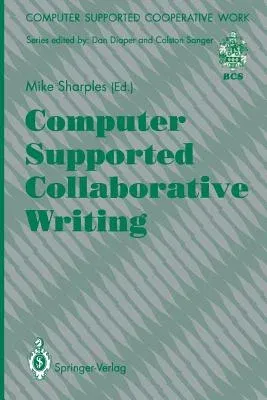Computer Supported Collaborative Writing (Edition.)Paperback - Edition., 26 February 1993

Qty
1
Turbo
Ships in 2 - 3 days
In Stock
Free Delivery
Cash on Delivery
15 Days
Free Returns
Secure Checkout
Part of Series
Computer Supported Cooperative Work
Part of Series
CSCW: Computer Supported Cooperative Work
Part of Series
Workshops in Computing
Print Length
222 pages
Language
English
Publisher
Springer
Date Published
26 Feb 1993
ISBN-10
3540197826
ISBN-13
9783540197829
Description
Product Details
Book Edition:
Edition.
Book Format:
Paperback
Country of Origin:
US
Date Published:
26 February 1993
Dimensions:
23.39 x
15.6 x
1.3 cm
ISBN-10:
3540197826
ISBN-13:
9783540197829
Language:
English
Location:
London
Pages:
222
Publisher:
Series:
Weight:
340.19 gm

